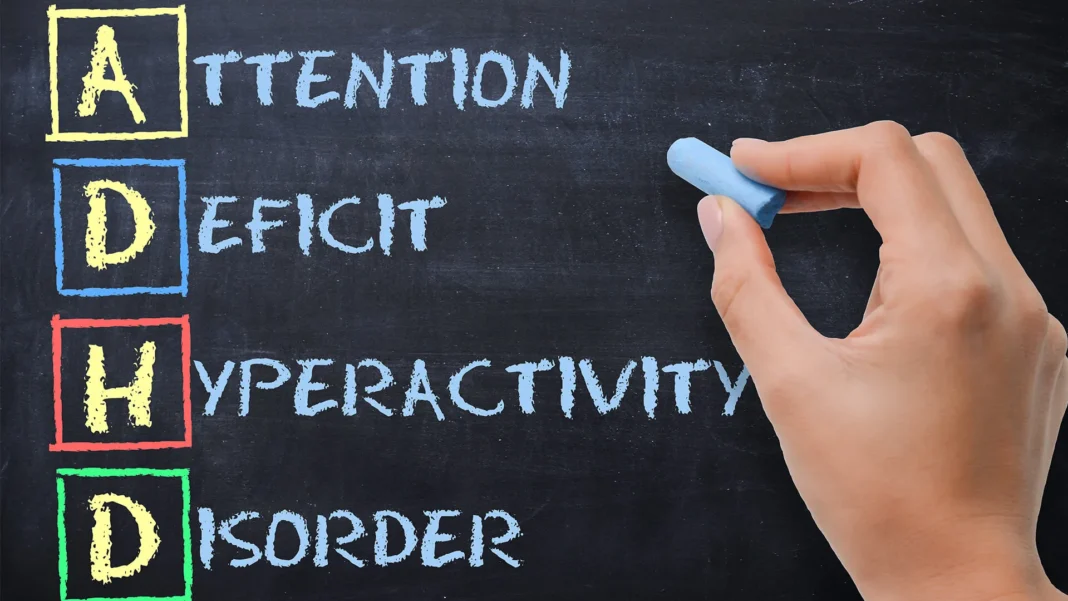Introduction
Mental wellness is an integral aspect of our overall health. It affects how we think, feel, and act, influencing everything from our daily mood to our ability to manage stress and maintain relationships. While many factors contribute to mental wellness, lifestyle choices play a crucial role, with alcohol consumption being one of the most significant.
Alcohol is often used to unwind, socialize, or cope with stress, but what happens when these occasional drinks become a regular habit? How does alcohol impact our mental health, and what are the benefits of reducing its intake? This blog post explores the profound impact alcohol can have on mental wellness and highlights eight compelling reasons to cut back on alcohol to improve your mental health.
Understanding Alcohol and Mental Wellness

Alcohol’s Impact on the Brain
The relationship between alcohol and the brain is complex and far-reaching. Alcohol is a psychoactive substance that affects brain chemistry and function, leading to various mental health issues over time.
The Chemistry of Alcohol and the Brain
When you consume alcohol, it interacts with neurotransmitters in the brain, particularly gamma-aminobutyric acid (GABA) and glutamate. GABA has a calming effect, while glutamate excites the brain. Alcohol increases GABA activity, leading to relaxation and reduced anxiety, but it also inhibits glutamate, which slows down brain function. This dual action explains why alcohol can initially feel like a stress reliever, but it also leads to impaired judgment, mood swings, and eventually, dependence.
Short-Term Effects of Alcohol on Mental Health
In the short term, alcohol can create feelings of euphoria and relaxation. However, it can also lead to anxiety, irritability, and mood swings as the initial effects wear off. These mood fluctuations can create a cycle of drinking to manage the low points, perpetuating a dependency that negatively impacts mental wellness.
Alcohol Use Disorder (AUD) and Mental Health
What is Alcohol Use Disorder?
Alcohol Use Disorder (AUD) is a chronic condition characterized by an inability to control alcohol consumption despite adverse consequences. AUD ranges from mild to severe and can significantly impact an individual’s mental health.
How AUD Exacerbates Mental Health Issues
Those with AUD are at a higher risk of developing mental health disorders such as depression, anxiety, and bipolar disorder. Alcohol can exacerbate symptoms of these conditions, leading to a worsening cycle where alcohol is used to cope with the very symptoms it intensifies.
The Connection Between Alcohol and Stress
Alcohol as a Coping Mechanism
Many people turn to alcohol as a way to cope with stress. It’s a quick fix that provides temporary relief, making it a popular choice for those seeking to escape their worries.
The Vicious Cycle of Alcohol and Stress
How Alcohol Temporarily Relieves Stress
Alcohol can temporarily reduce feelings of stress by depressing the central nervous system, leading to a sense of calm and relaxation. However, this effect is short-lived and often followed by a rebound effect where stress and anxiety increase.
Long-Term Consequences of Using Alcohol to Manage Stress
Using alcohol as a stress management tool can backfire in the long run. Over time, the brain becomes reliant on alcohol to feel relaxed, which can lead to increased anxiety and stress when not drinking. This creates a vicious cycle where alcohol use perpetuates the very stress it is intended to alleviate.
8 Benefits of Reducing Alcohol for Mental Wellness
Improved Mood and Emotional Stability
Reduced Risk of Depression and Anxiety
One of the most significant benefits of reducing alcohol is the improvement in mood and emotional stability. Alcohol is a depressant that can contribute to feelings of sadness and anxiety. Cutting back on alcohol allows your brain chemistry to stabilize, reducing the risk of developing or exacerbating mental health conditions like depression and anxiety.
Enhanced Ability to Handle Stress
When you reduce alcohol intake, you are better equipped to handle stress. Without alcohol dulling your emotional responses, you can develop healthier coping mechanisms that lead to long-term resilience rather than short-term relief.
Better Sleep Quality
The Role of Alcohol in Disrupting Sleep
Alcohol may help you fall asleep faster, but it disrupts the sleep cycle, particularly the REM (Rapid Eye Movement) stage, which is crucial for restorative sleep. This disruption leads to poor sleep quality, leaving you feeling tired and irritable the next day.
How Reducing Alcohol Leads to Restorative Sleep
Reducing alcohol intake improves sleep quality by allowing your body to enter deeper, more restorative stages of sleep. As a result, you wake up feeling refreshed and more mentally alert, which has a positive impact on your overall mental wellness.
Enhanced Cognitive Function
Sharper Memory and Focus
Alcohol impairs cognitive functions such as memory and concentration. Over time, excessive drinking can lead to cognitive decline, making it harder to focus, learn, and remember things. By cutting back on alcohol, you can experience improvements in memory, focus, and overall mental clarity.
Reduced Risk of Cognitive Decline
Long-term alcohol consumption has been linked to an increased risk of cognitive decline and dementia. Reducing alcohol intake can help protect your brain from these risks, preserving cognitive function as you age.
Increased Energy Levels
Alcohol and Fatigue
While alcohol might initially seem to boost energy, it actually leads to fatigue and sluggishness over time. This is because alcohol disrupts sleep, dehydrates the body, and depletes essential nutrients, all of which contribute to low energy levels.
How Cutting Back on Alcohol Boosts Energy
By reducing alcohol, you allow your body to recover its natural energy balance. Better sleep, improved hydration, and restored nutrient levels all contribute to increased vitality and energy, making you feel more capable of tackling daily challenges.
Better Relationships and Social Interactions
Alcohol’s Impact on Social Behaviors
Alcohol can alter your behavior, leading to impulsive decisions, mood swings, and strained relationships. It can also contribute to social anxiety and make it difficult to form and maintain meaningful connections with others.
How Reducing Alcohol Improves Communication and Connection
When you reduce alcohol, you gain better control over your emotions and actions, leading to healthier, more authentic interactions with others. You’ll find that your relationships improve as you become more present, empathetic, and communicative.
Greater Self-Awareness and Mindfulness
Alcohol’s Role in Numbing Emotions
Alcohol often serves as an emotional crutch, numbing feelings that might be difficult to deal with. While this might provide temporary relief, it also prevents you from fully processing and understanding your emotions.
Developing a Deeper Connection with Yourself
By cutting back on alcohol, you allow yourself to experience your emotions more fully and develop greater self-awareness. This mindfulness leads to a deeper understanding of your needs, desires, and boundaries, which is essential for mental wellness.
Reduced Risk of Mental Health Disorders
Alcohol as a Trigger for Mental Health Issues
Excessive alcohol consumption can trigger or worsen mental health disorders. Conditions such as depression, anxiety, and bipolar disorder are often exacerbated by alcohol use, leading to more severe and persistent symptoms.
Lowering the Likelihood of Mental Health Relapses
Reducing alcohol intake lowers the risk of triggering mental health issues and can help prevent relapses in those with pre-existing conditions. This proactive approach to mental wellness allows for better management of symptoms and overall stability.
Enhanced Overall Quality of Life
How Alcohol Affects Daily Functioning
Alcohol can negatively impact various aspects of daily life, from work performance to personal relationships. The more you drink, the more likely you are to experience problems in these areas, which can take a toll on your overall quality of life.
The Long-Term Benefits of Reducing Alcohol Intake
By cutting back on alcohol, you improve your ability to function effectively in daily life. You’ll find that you have more time, energy, and mental clarity to pursue your goals, engage in hobbies, and maintain a balanced lifestyle.
Tips for Reducing Alcohol Intake
Setting Clear Goals
If you’re serious about reducing alcohol, it’s essential to set clear, achievable goals. Whether it’s cutting back to a certain number of drinks per week or abstaining entirely, having a plan in place can help you stay on track.
Finding Healthy Alternatives
One of the best ways to reduce alcohol consumption is to find healthy alternatives. This could include non-alcoholic beverages, hobbies, or activities that bring you joy and relaxation without the need for alcohol.
Seeking Support and Accountability
Reducing alcohol is easier when you have support. Whether it’s a friend, family member, or support group, having someone to talk to and hold you accountable can make a significant difference in your journey.
Understanding and Managing Triggers
Identifying the situations, emotions, or environments that trigger your desire to drink is crucial. Once you understand your triggers, you can develop strategies to manage them effectively, reducing the likelihood of turning to alcohol.
Challenges and How to Overcome Them
Social Pressures
One of the biggest challenges in reducing alcohol is dealing with social pressures. Whether it’s a party, a night out with friends, or a family gathering, the expectation to drink can be overwhelming.
Strategies for Managing Social Situations
To navigate social pressures, it’s helpful to plan ahead. Consider alternative drinks, practice saying no politely, or choose activities that don’t revolve around alcohol. Remember, it’s okay to prioritize your mental wellness.
Coping with Withdrawal Symptoms
What to Expect During Alcohol Reduction
As you reduce alcohol, you may experience withdrawal symptoms such as irritability, anxiety, or sleep disturbances. These symptoms are a normal part of the process, and they typically subside as your body adjusts to lower alcohol levels.
Maintaining Long-Term Commitment
Building a Sustainable Routine
Long-term success in reducing alcohol requires a sustainable routine. This might include regular exercise, healthy eating, mindfulness practices, and ongoing support. Consistency is key to maintaining the mental wellness benefits of reduced alcohol consumption.
Conclusion
Reducing alcohol intake offers numerous benefits for mental wellness, from improved mood and sleep to enhanced cognitive function and relationships. By taking steps to cut back on alcohol, you can significantly improve your quality of life and overall mental health. It’s a journey that requires commitment and effort, but the rewards are well worth it.
FAQs
How quickly will I notice improvements in my mental health after reducing alcohol?
Improvements in mental health can be noticed within a few weeks of reducing alcohol. However, the timeline varies depending on factors like the amount of alcohol previously consumed, individual health, and lifestyle habits.
Can reducing alcohol completely eliminate mental health issues?
Reducing alcohol can significantly improve mental health, but it may not completely eliminate mental health issues, especially if they are rooted in other factors. It’s essential to address all aspects of mental wellness, including seeking professional help when needed.
What are some healthy alternatives to alcohol for managing stress?
Healthy alternatives to alcohol for managing stress include exercise, meditation, deep breathing exercises, engaging in hobbies, and spending time with loved ones. These activities can help you relax and unwind without relying on alcohol.
Is it necessary to quit alcohol entirely to see benefits?
It’s not always necessary to quit alcohol entirely to see benefits. Even reducing alcohol intake can lead to significant improvements in mental wellness. However, for those with AUD or severe mental health issues, quitting entirely might be the best option.
How can I stay motivated to reduce alcohol intake?
Staying motivated to reduce alcohol intake can be challenging, but setting clear goals, tracking your progress, seeking support, and reminding yourself of the mental health benefits can help you stay on track. Celebrate your successes, no matter how small, to keep yourself motivated.




